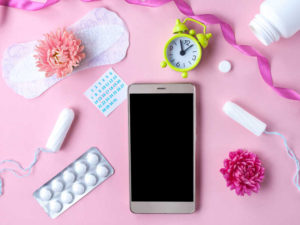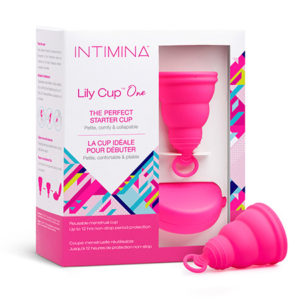“National Youth Day 12th August”
 Recent study blames lack of education for causing confidence issues in young people when talking about sexual and reproductive health:
Recent study blames lack of education for causing confidence issues in young people when talking about sexual and reproductive health:
-
70% believe that adolescents aren’t educated enough in the matters of sexual and reproductive health
-
57% say that minors don’t have enough information from trusted sources such as schools and medical offices
-
59% believe that young girls don’t have all of the facts they need to make informed decisions about menstrual care options
-
71% of respondents believe that the lack of information is causing reduced confidence amongst young people meaning they’re less inclined to seek advice about sexual and reproductive health
Menstruation and talking about periods are still seen as a taboo subject, particularly for young people, with more than half of girls aged 14-21 admitting to being embarrassed by their periods*
A global survey by Intimina, has found that 70% believe adolescents aren’t educated enough in the matters of their sexual and reproductive health.
The experts in women’s intimate health, Intimina, who conducted the survey amongst its newsletter subscribers, is keen to help educate all adolescents, not just girls, on sexual and reproductive health to help banish the taboo hanging over the subject and still more confidence in the generations to come when it comes to talking about periods.
While most agree that basic education is received through sex education or biology classes, the information provided is simply technical and fails to include enough on the menstrual cycle and the essence of being a woman.
When discussing menstrual care options, 59% of the respondents felt that young girls don’t have all the facts they need to make informed decisions, although, of that 59%, the 29% who live in urban areas do say that the availability of these alternative options such as cups and period underwear is not an issue, but the lack of information is.
Respondents from rural areas stated that their only source for purchasing alternative menstrual care options to tampons and pads are online stores, but 64% of these respondents stated that they would feel more comfortable if they were able to physically see and feel the product prior to purchase.
The issue surrounding the availability of information about contraceptive and menstrual care methods had the majority of the respondents commenting on the age in which the adolescents start using them. 57% claim that minors don’t have enough information about this from trusted sources such as schools and medical offices, so they use the internet or their friends to get the information they need.
This lack of information is causing a lack of confidence for young people to seek advice about sexual and reproductive health, according to 71% of the respondents in the survey. Better formats of sex education in schools and empowering youngsters, particularly young girls, to take charge of their bodies are just some of the suggestions submitted to Intimina as part of the global report on how to improve that statistic.
Nora Zukauskaite, UK head of marketing comments,“Intimina believes that all women, young girls especially, deserve to have all the information relating to their sexual and reproductive health in order to make informed decisions about their bodies regardless of your class.
Period poverty is still a major global issue and the only way to put a stop to it is to have educational institutions working alongside menstrual care brands and medical organisations to provide all adolescents everywhere with everything they need to feel confident every day of the month. To feel confident about the decisions they make about their bodies and most importantly to feel confident enough to seek out professional advice regardless of the issue they’re facing and especially regardless of their gender.”
Article by Intimina

About Intimina: Established in 2009, Intimina is Swedish brand complete line of products for women’s intimate well-being. With two care ranges – Menstrual Care and Pelvic Floor Strengthening – Intimina has products for women of all ages. Every product is made from the highest quality body-safe materials, and has been designed and tested with the support of a worldwide group of medical consultants and gynecologists.
Love this post? Rate it!
[Total: 0 Average: 0]